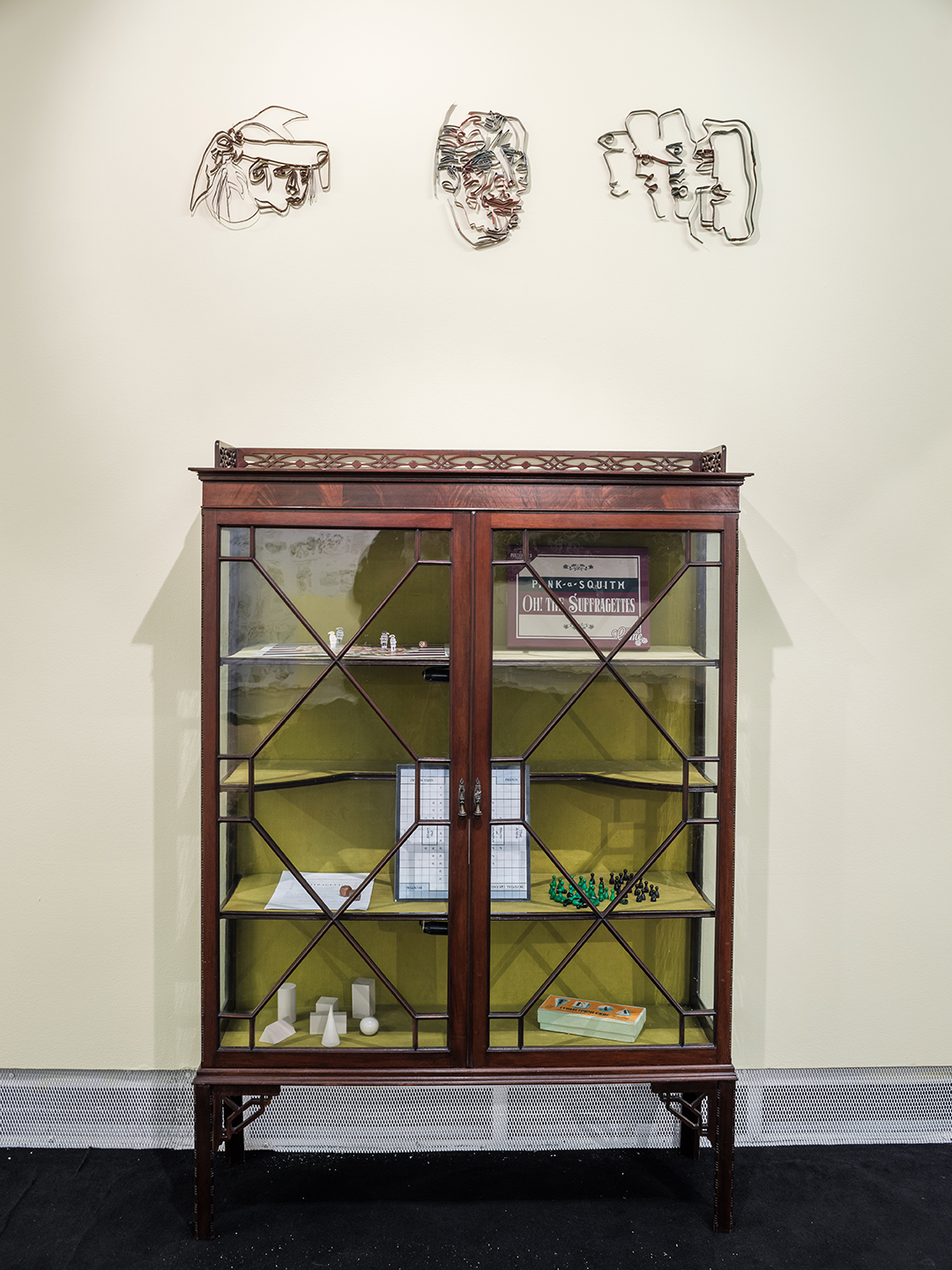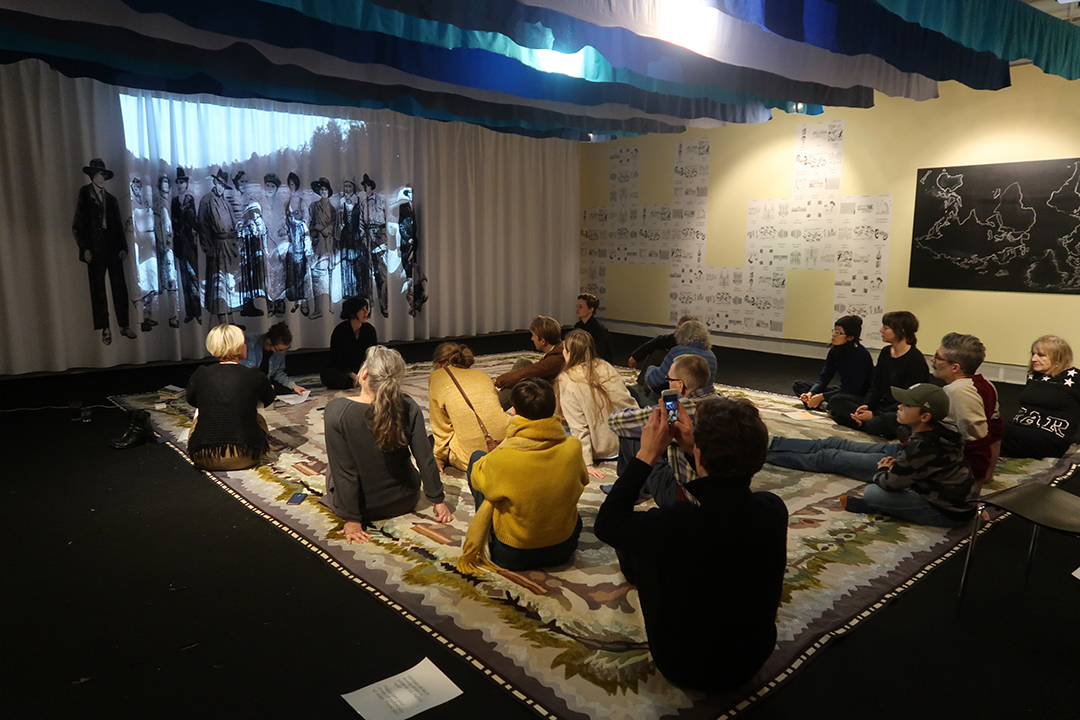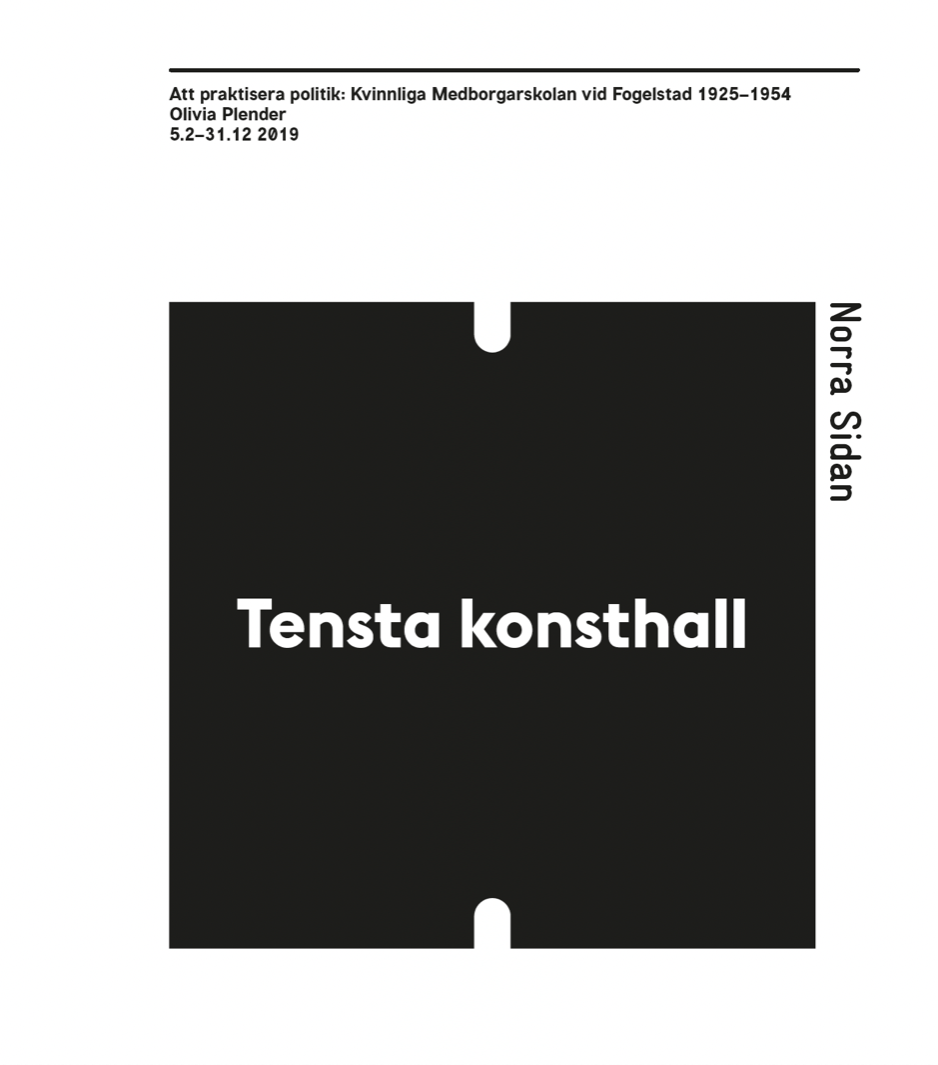A new installation commissioned from Stockholm-based artist Olivia Plender hosts a series of public seminars, screenings and performative workshops looking into the history and methods of the Fogelstad Women’s Citizenship School, a radical educational experiment founded after following women gained the right to vote in Sweden in 1921. From 1925 to 1954, the school — self-organised by a group of women, many of whom had been active as women’s liberationists and promoters for women’s right to vote — held courses designed to educate women about their new roles and responsibilities as citizens. Alongside lectures by invited speakers on history, politics and sexual health, the school’s pedagogical method foregrounded embodied knowledge and collective experience through role play, singing and eurythmics. The five founders were the liberal politicians Elisabeth Tamm (1880—1958) and Kerstin Hesselgren (1872—1962), the physician Ada Nilsson (1872—1964), the teacher Honorine Hermelin (1886—1977), who was later the Rector of the school, and the writer Elin Wägner (1882—1949): among the many students, the famous writer Moa Martinson (1890—1964) and the artist Siri Derkert (1888—1973). Connecting the history of the school with contemporary feminist practices, activist groups and pedagogic experiments, the project attempts to understand what forms of knowledge such methods may produce and what political potential they had then — and have now. During the year, a series of programs will take place.
Practicing Politics: The Fogelstad Women’s Citizenship School 1925—1954
Olivia Plender, Curator: Curator Hannah Zafiropoulos
5.2—31.12 2019
Practicing Politics: The Fogelstad Women’s Citizenship School 1925—1954: Olivia PlenderPracticing Politics: The Fogelstad Women’s Citizenship School is a one-year research project initiated by London-based curator Hannah Zafiropoulos as part of The Eros Effect: Art, Solidarity Movements and the Struggle for Social Justice.
Read more ↓
Read more ↓
On until
31.12 2019Opens
5.2 2019
31.12 2019Opens
5.2 2019
Exhibition is open
Tuesday—Friday 11—17
Saturday and Sunday 12—17
Closed 24 December—1 January
Free entrance
Tuesday—Friday 11—17
Saturday and Sunday 12—17
Closed 24 December—1 January
Free entrance






